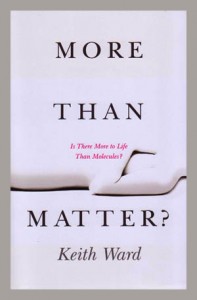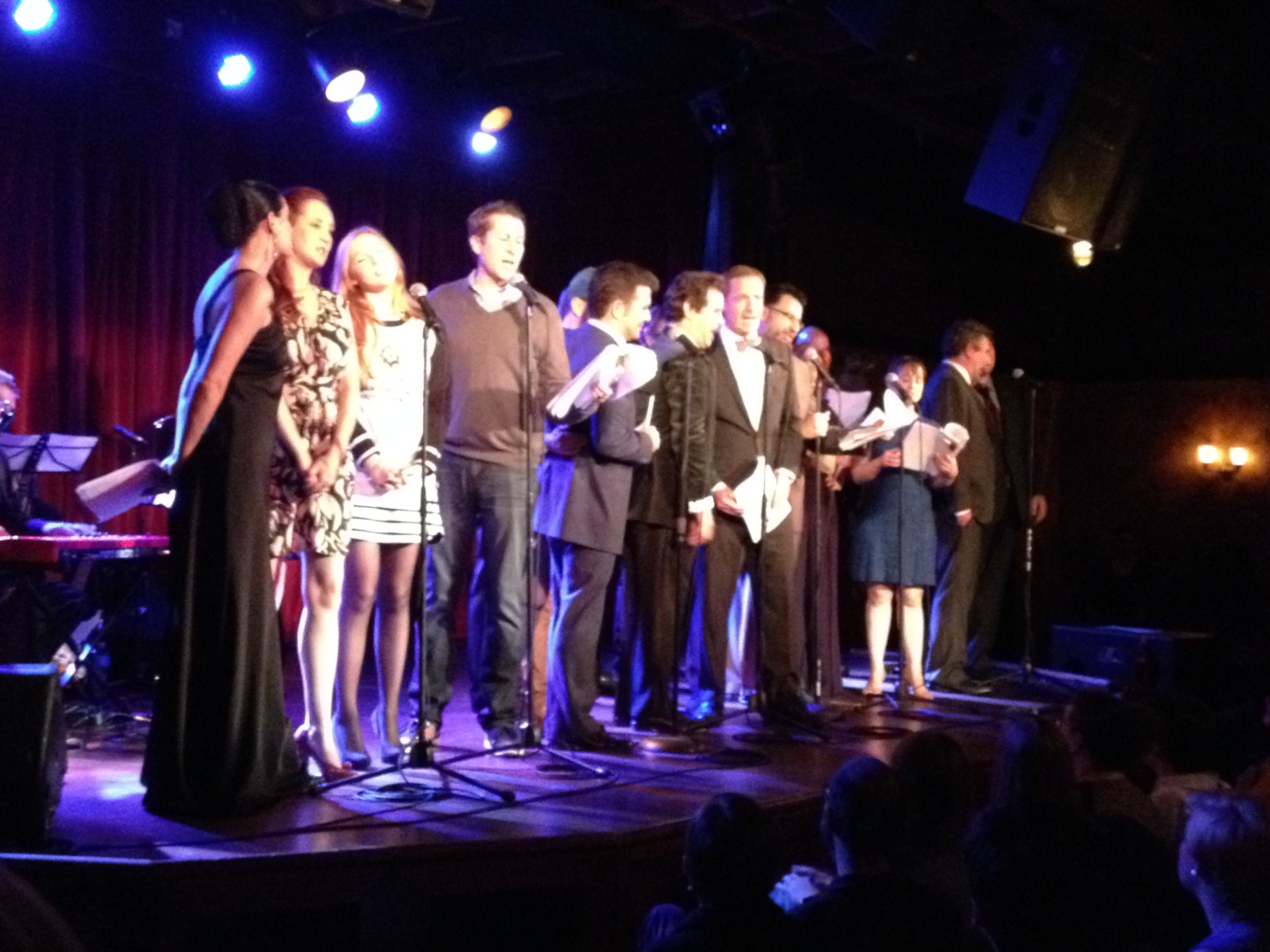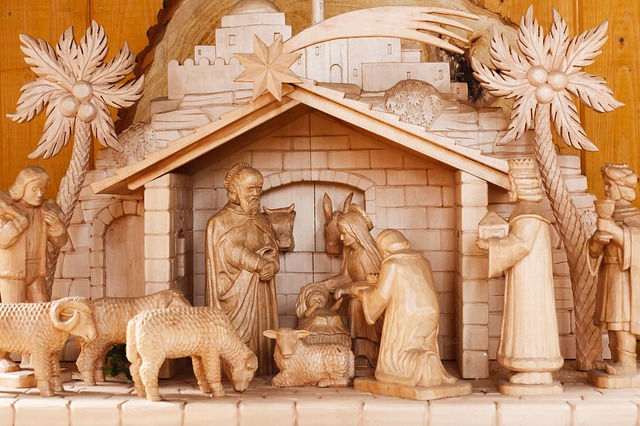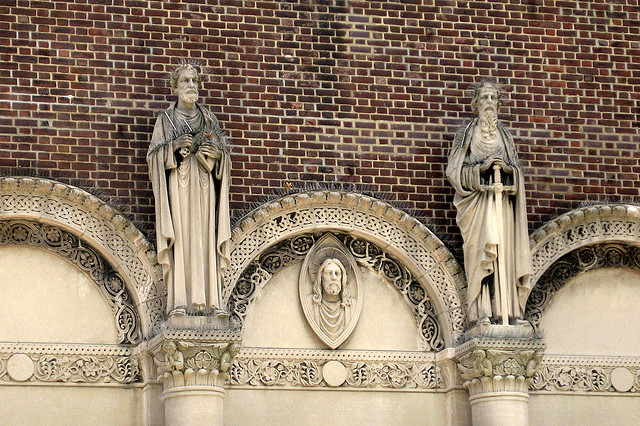(Exodus 12:1-14; Psalm 116:1, 10-17; 1 Corinthians 11:23-26; John 13:1-17, 31b-35)
PDF | Audio (soon) | Text:
A dear friend of mine is the cantor at Congregation Beth El in Bethesda. Each year, my wife and I do our best to get ourselves invited to his Passover Seder. This is one of those years where the Gregorian and Hebrew calendars agree, so the Seder’s lovely introductory question has continued with me since Monday night: “Why is this night different from all other nights?”
It’s a borrowed question for us in this place on this night, but I think it’s an appropriate one. What makes this night different from other nights for followers of Jesus? What does Maundy Thursday tell us about what will happen tomorrow, and the day after that, and the night after that?
**
Our reading from Exodus reminds us that the story that begins today and ends in the wee hours on Saturday is, like the Exodus, a story of liberation.
Our Jewish brothers and sisters keep the Passover meal with stylized embellishments intended to teach the next generation about this movement from slavery to freedom. It is the great redemption narrative of the Hebrew Bible. At Monday night’s seder, our group heard over and over again words like these: “We were slaves to Pharaoh in Egypt, and the L-rd, our G‑d, took us out from there with a strong hand and with an outstretched arm.”
I’m always grateful to be one of the “little ones” receiving instruction. I always need the reminder that God longs to set us free, again and again.
**
Our reading from 1 Corinthians reminds us that, before the drama of Friday and of Sunday, Jesus instituted a tradition distinct from but not totally unlike the Passover meal. It’s at the center of our life together here at St. Paul’s.
What Paul leaves out but Matthew, Mark, and Luke recount is that our Lord desired to eat the Passover meal with his disciples, the twelve. It’s a beautiful reminder of Jesus’s humanity—that he longed to share his final meal with his friends.
After several days of very public words and deeds, overturned tables and apocalyptic teaching, our Lord chose, as some of his last free actions, to take, to bless, to break, to share. As painful as his words in the garden would be (“Could you not wait with me one hour?” “If it is possible, let this cup pass from me”), more powerful for us this night are what came first: “Eat. Drink. Remember me.”
**
Our reading from John reminds us how difficult and how beautiful such intimacy can be. Unlike Matthew, Mark, and Luke, John does not focus on the meal. Instead, he tells us about an accompanying action:
And during supper Jesus … got up from the table, took off his outer robe, and tied a towel around himself. Then he poured water into a basin and began to wash the disciples’ feet and to wipe them with the towel that was tied around him.
Try to take that in as the disciples had to. This man is their teacher, their master. In the past few days alone he has raised a man from the dead, been welcomed as King of Israel by crowds in the street, had his own feet anointed with perfume worth a year’s wages. I dare say that every one of us would feel how Peter felt, “You will never wash my feet!”
Peter’s part in the story helps ensure that we take the full meaning. It’s true that Jesus says “I have set you an example, that you also should do as I have done to you.” It’s true that this story and this night are a meditation on serving others.
But Peter’s resistance and Jesus’s insistence show us the complete picture. Christian life in community requires a willingness not just to serve but to be served. We have to let go and let God save us. We have to let go and let our community support us. All around town right now, the meek and the mighty are baring their smelly, linty, calloused, embarrassing feet.
If we can’t do that, how could we hope to bare our souls? And if we can’t do that, what will we do when we need Jesus to bear them for us, unto salvation and redemption and what lies beyond?
**
Of the Maundy Thursdays I have experienced, one of them stands out in my memory, probably always will. I don’t know if it truly speaks to the core of what makes this strange and wonderful night distinct from all the others. But it has made all the difference for me.
It was my last year of graduate school in Madison, Wisconsin. I was attending both the student ministry on campus and a neighborhood parish not far from where I’d been living. We got word, a couple hours before the service, that the senior warden of the parish had died that morning. He was no older than my own father, a healthy and vital man. There had been no notice.
When the rector came out to the center aisle to preach, he looked … well, exactly like any of us would look after spending the day with the shocked and grieving family of a friend and partner in ministry gone too soon. I don’t remember anything about the sermon but its first line: “This is an impossible moment at the end of an impossible day.”
This church used foot-washing stations, and I can still remember the faces on the first wave of people being washed. One was the parish deacon, a perennially cheerful woman who had known the deceased for many, many years. One was my former chaplain at UW; she had guided me through a few crises of my own and was the first person ever to tell me I should be a priest. I’m sure these two stick out for me because, like the rector, they were people I was taken aback to see so vulnerable in church. Impossible moments will do that. And impossible moments are what the church is here for.
The last face I remember is less detailed. She wasn’t a friend or mentor, just a fellow parishioner about six years old. I don’t think she understood what was making that particular night so different and so painful. She washed my feet gently but diligently. And then, at her mother’s prompting, she looked into my bloodshot eyes and said, “Thank you for letting me wash your feet.”
**
Whatever makes this night different, it’s too damn subtle and complicated and magnificent for sermons. These readings are a holy traffic jam of cultural memory and religious meaning: blood of the Passover lamb mixed with dust of Judean hillsides mixed with water and wine and crumbs and tears and God knows what else. There’s no secret path through the mess that deposits us on the other side with talking points and a doggy bag.
All we have to do—all we can do—is show up and be present to God and each other. Impossible things will happen, some terrifying, some wondrous. At the center of it all is a Lord who is, on this very night before he died for us, an icon of human vulnerability. Take, thank, eat, wash, pray, drink, remember, love. Do this in remembrance of him.










